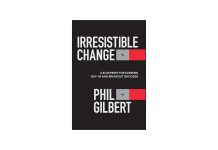
When it comes to expanding your repertoire of specialties, be systematic.
Don’t Be Daunted, But Don’t Be Totally Undaunted Either. Let’s say you just got what appears to be a pretty great new assignment with a promising new internal customer. What if you’ve never done anything quite like this before? What if the thought of it brings out all of your worst fears about your abilities? Don’t be intimidated. This is a chance to learn and grow.
But you also don’t want to be naïve or arrogant about your abilities. You’d be surprised how often some people, when taking on a new task or assignment, make the mistake of thinking, “How much could there be to this anyway?” Usually, the answer is, “Much more than you might think.” So don’t underestimate what you’re being asked to do.
Do not try to figure out the new job all on your own. You don’t have to wing it alone and try to pull off this new thing without anybody being any the wiser. That approach is for rookies.
No matter what you do, make it knowledge work. Some experts will tell you that knowledge work is about what you do. If your tasks, responsibilities, and projects require an especially high level of training, education, and certification (like a doctor, an engineer, or a teacher), then it is knowledge work. Whereas if your job does not require that kind of learning (like digging a ditch, for example), then it is not knowledge work.
I disagree.
In our research, we see people every day doing work that doesn’t seem to require particularly esoteric knowledge, but nonetheless they are highly intentional about leveraging information, technique, and perspective in everything they do. (I’ve also seen plenty of people performing classic knowledge work jobs who are notably not thoughtful in their day-to-day performance.)
By our definition, knowledge work isn’t only about what you do, but is very much about how you do what you do. That’s where learning in plain sight comes into play. If you are highly intentional about asking for help and then leveraging that information, technique, and perspective in everything you do, then you are doing knowledge work, even if you’re digging a ditch.
What does that really mean? It means, in everything you do, keep an open mind, suspend judgment, question your assumptions, and seek out the information you need. Then study, practice, and contemplate in order to build your stored knowledge base and skill set. Think of the smartest person you know. That person is almost certainly also one of the most voracious learners you know. The biggest mistake that keeps people from getting smarter is thinking that being smart is a fixed status, rather than a dynamic process.
The best thing you can do when acquiring any new knowledge or skill is to start by pretending you don’t know anything about it (or at least take note that you don’t know everything about it). Then ask yourself: What knowledge, skill, and wisdom would really help me with this new task or responsibility? What information do I need to study? What do I need to memorize or practice again and again? Repetition is often the key to success.
So be a knowledge worker. Go out of your way to learn, learn at every step, and leverage what you are learning in everything you do.
Learn in plain sight. When you take on something new, don’t set yourself up for failure by thinking, “I don’t want to be caught learning in plain sight on this because that might diminish people’s confidence in me and my work.” There is no need to be a surreptitious learner.
Anybody with any experience learning things knows that active learners tend to be the ones who know the most. When you learn in plain sight, smart colleagues will have more confidence in you, not less. Be 1,000 percent transparent to accelerate your learning curve. Ask around and get someone to mentor you in the skill you want to acquire. Ask a lot of really good questions. Inquire about current best practices so you can find them, learn them, build standard operating procedures, and adopt them. Find out about recurring problems and repeatable solutions so you can have them at the ready. Ask about existing job aids such as work instructions, checklists, and best of all, examples of similar or related prior work product from which you can learn, imitate, and extrapolate.
Then make it clear at every step that you are actively learning and practicing this new task, responsibility, or project—this new knowledge, skill, and wisdom—in parallel with the work you already do in your current job. Keep asking good questions of good people along the way as you build up best practices, repeatable solutions, and job aids.
Don’t reinvent the wheel. Lots of people end up reinventing the wheel when learning something new simply because they didn’t realize the wheel had already been invented.
Maybe you’ve had this experience yourself. You get halfway through a task, responsibility, or project—or all the way through it—and then you realize, “This has already been done before! Why didn’t somebody tell me?” The question you should be asking yourself is, “Why didn’t you investigate the matter before plunging in?”
Remember to professionalize everything you do. That’s how you plunge into something new: Look for established best practices, repeatable solutions, and job aids (especially prior successful work products). Most of the new tasks, responsibilities, projects, and problems you encounter at work, though new to you, probably will not be matters of first impression. Almost always, you can assume, this has been done before. Some people have done it better than others. Some have done it best. That’s why it’s a best practice. Too often, best practices hide below the radar in organizations.
Smart organizations are always looking below the radar to find those best practices and make them available to everybody. Again, once best practices are identified, they should be turned into standard operating procedures, and they should be required learning for people in the organization and supported systematically with high-quality training and job aids.



